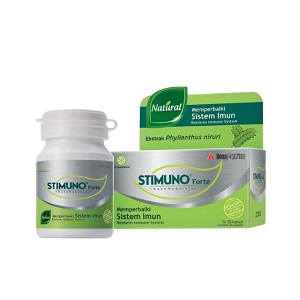
Do You Really Need Supplements After Pilates?
Pilates Pila – When you finish a Pilates session whether it’s an intense reformer class or a relaxing mat routine your body goes through recovery mode. Muscles repair, energy levels dip, and your body begins rebuilding what it used during the workout. But here comes the big question: do you really need to take supplements after Pilates?
Some fitness enthusiasts will swear by their post workout protein shakes or capsules full of vitamins. Others stick to a balanced meal and hydration. The truth? The answer isn’t as black-and-white as many believe and what works for one person might not work for another. In this article, we’ll explore the truth behind supplements after Pilates, who might benefit, what types are out there, and whether they’re actually necessary for you.
Read More : Charleston Locals Believe the Economy Is Improving
Pilates, though low impact, is a full-body workout that emphasizes controlled movements, strength building, posture, and flexibility. It engages core muscles deeply and can burn a decent amount of calories depending on the intensity and duration.
After a session, your muscles go into a phase known as muscle protein synthesis. This is where your body begins to repair the tiny microtears in your muscle fibers (yes, even in low-impact workouts like Pilates). Your energy stores, primarily glycogen, are also depleted to some extent especially if your session was long or part of a back-to-back workout routine.
Now here’s where the conversation around supplements begins.
Let’s be honest most casual Pilates practitioners don’t need supplements. If you’re doing Pilates a few times a week and eating a healthy, balanced diet with enough protein, vitamins, and minerals, your body is already getting what it needs to recover.
However, there are specific scenarios where supplements can be a smart choice:
You’re doing Pilates daily or combining it with cardio or strength training.
You’re recovering from injury and need a nutritional boost.
You’re on a restrictive diet (vegan, keto, etc.) and might lack certain nutrients.
You’re over 40 and dealing with natural muscle loss or lower recovery rates.
You’re aiming for faster muscle toning or body composition changes.
In these situations, supplements could help support your goals but they’re not magic pills.
If you fall into the category that might benefit from supplements, here are a few commonly used ones—plus what they actually do.
Protein Powder (Whey or Plant-Based):
Supports muscle recovery and growth. Ideal if you don’t meet your daily protein intake through food. For Pilates, which focuses on lean muscle development, a small post-workout protein shake can be helpful.
BCAAs (Branched-Chain Amino Acids):
Popular among athletes, BCAAs may help reduce muscle soreness and support muscle repair. While not essential, they can be beneficial if your sessions are long or intense.
Magnesium:
Pilates involves deep core engagement, and muscle cramps or fatigue can follow. Magnesium helps prevent cramping, supports muscle recovery, and even improves sleep quality vital for post-exercise recovery.
Collagen:
Great for joint health, skin elasticity, and muscle repair. Since Pilates emphasizes joint alignment and movement, collagen is often a go-to for enthusiasts wanting to stay mobile and injury-free.
Electrolytes:
If you sweat heavily, especially in hot environments or during reformer Pilates, replenishing electrolytes (sodium, potassium, magnesium) can help maintain hydration and energy balance.
Here’s the reality: just because a supplement is available at your local health store doesn’t mean it’s right for your body. Overdoing it can actually backfire.
Too much protein can stress your kidneys.
Excess magnesium might cause digestive upset.
Unnecessary vitamin supplements can interact with medications or throw off your nutrient balance.
More is not always better and relying on supplements without addressing your actual diet and lifestyle is like putting a Band-Aid on a deeper issue.
Before you rush to buy a tub of protein powder or capsules, consider this: most of the recovery nutrients your body needs are readily available in whole foods.
After Pilates, a light and nutritious meal might include:
Grilled chicken or tofu with brown rice and vegetables
A smoothie with banana, spinach, peanut butter, and almond milk
A quinoa salad with chickpeas and olive oil
These meals provide protein, healthy carbs, fats, and antioxidants everything your body needs without the risk of over-supplementation.
So, do you need supplements after Pilates? Maybe but only if your diet, routine, or goals demand it.
If you’re a casual Pilates lover with a well-rounded diet, there’s no pressing need to take anything extra. Your body is already equipped to handle recovery on its own. However, if you’re training intensively, dealing with nutritional gaps, or have specific fitness goals, certain supplements might offer a beneficial edge.
The most important thing is to listen to your body. Pay attention to how you feel post-workout. Are you constantly fatigued, sore for days, or not seeing the results you want? That’s when it might be time to explore supplements but always with guidance, not guesswork.
And remember: supplements are meant to supplement your lifestyle—not replace healthy habits. Start with your plate, then move to the pill bottle only if truly needed.